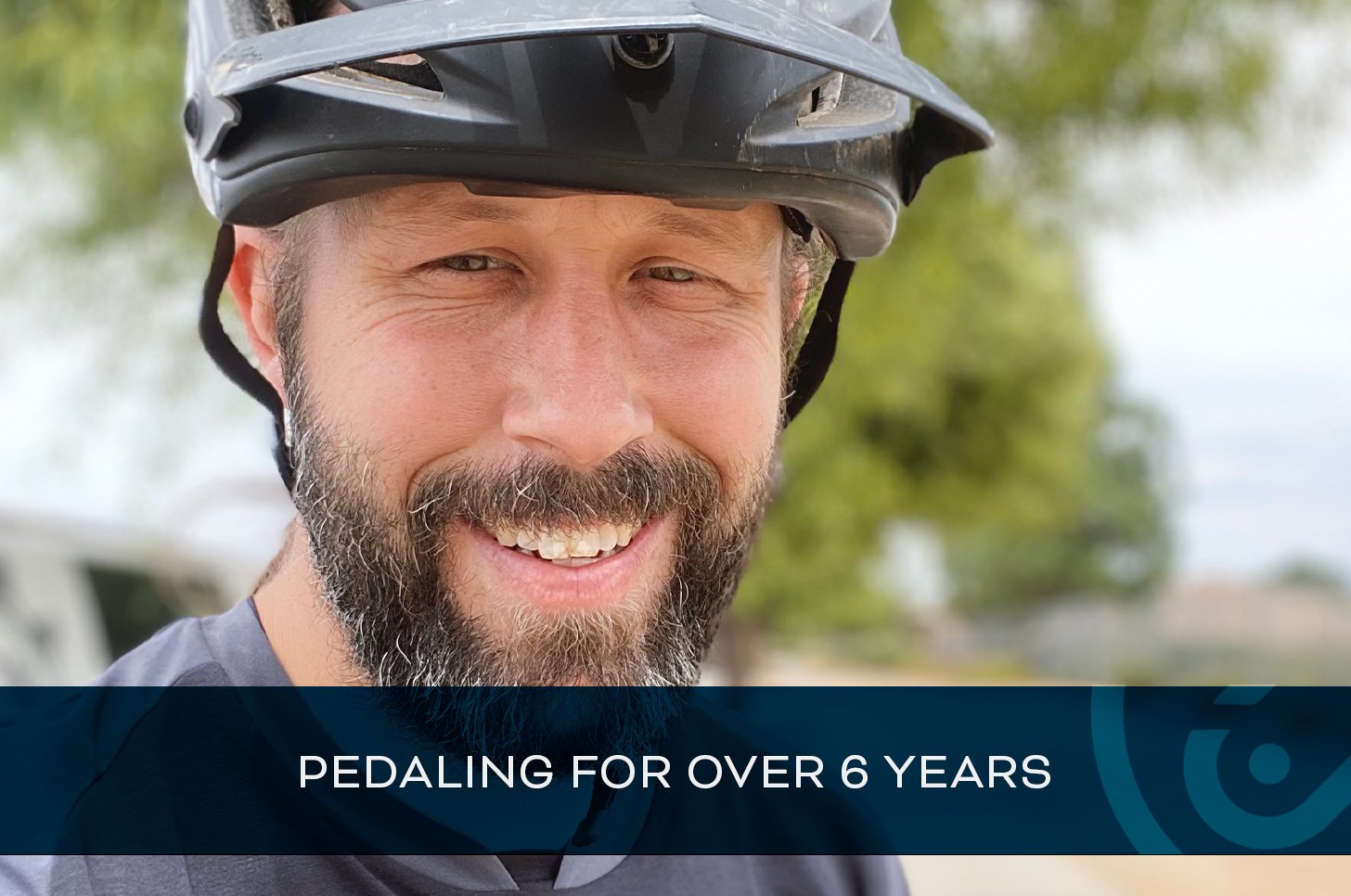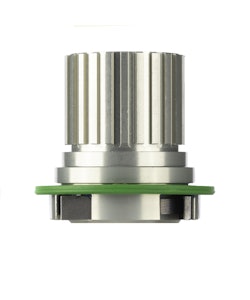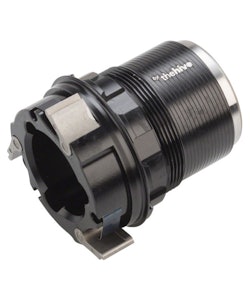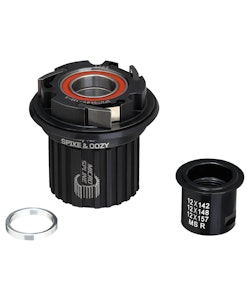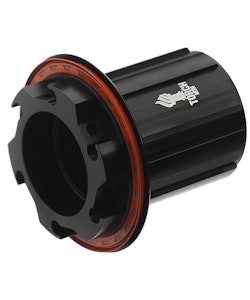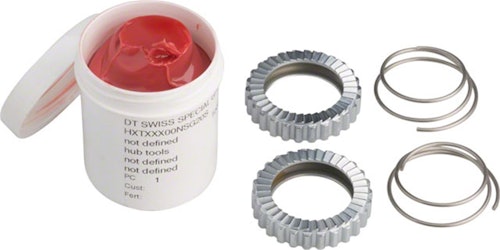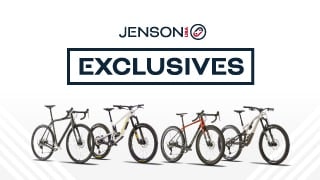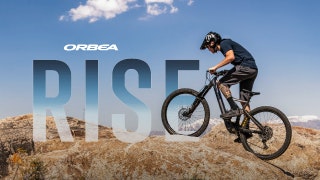FREEHUB BODIES
Freehub bodies are a critical component of your bicycle’s rear hub, providing the conduit between your pedaling power and the force applied to your rear wheel to propel your down the road or trail. To do this, these bodies incorporate a ratcheting mechanism along with a shaft that provides a mounting interface for a set of sprockets, better known as a cassette. The cassette mounts onto the shaft of the freehub body and engages the chain.
When you pedal, energy transfers from your bike’s cranks to the chain and then into the cassette, which spins your rear wheel via the freehub body. Conversely, because of the ratcheting mechanism, you can also stop pedaling and your wheel will continue to spin freely.
Some, but not all rear hub bodies, allow for the easy replacement/swapping of freehub bodies so, for example, you could switch between a Shimano and SRAM XD driver cassette attachment interface. And indeed, mode of cassette attachment is one of the key differentiators when shopping freehub bodies.
Most road and some mountain bike set-ups incorporate a Shimano freehub style with a splined-shaft interface, where the cassette slides into place and then is secured by a screw-on retention ring. Also popular for mountain bike drivetrains is SRAM’s XD driver standard, where the cassette screws directly onto the body. You also need to be aware of the number of speeds your bike has, as it will affect which freehub body will have the proper spacing to work with your bike’s drivetrain.
Key performance features include weight (lower is typically better but adds cost), ease of maintenance (some freehub bodies don’t require tools for you to work on them and replacement parts, like cartridge bearings, are easy to find), and degrees of engagement, which affects your bike’s rate of acceleration, especially in low-speed situations.
Freehub bodies tend to be brand specific when it comes to compatibility. This means you can’t put a SRAM freehub body onto a Shimano hub. It is best to stick within the brand to get the right body. If you have a DT Swiss rear hub shell, then you’ll want to get a DT Swiss freehub. Some brands, like Campagnolo, use a specific Campagnolo freehub body that is different than Shimano and SRAM.
If your cassette is starting to feel loose or becomes difficult to remove for basic maintenance tasks, then it’s probably a good time to peruse our wide selection of freehub bodies. And if you have any questions about compatibility, spacing, or performance, get in touch with a JensonUSA Gear Advisor who will be able to answer all your questions. You can email, chat, or call them at 888-880-3811.
